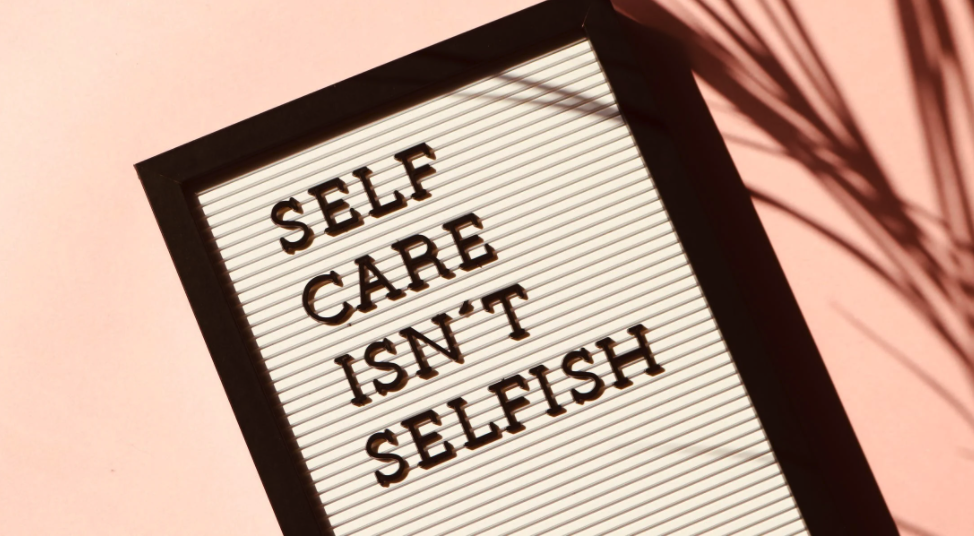Most of us were never taught what we need in order to feel safe, secure and loved.
When we’ve experienced safety, security and love, we know that we’re worthy of it. And we also know what to look out for. We naturally gravitate towards people who offer it. And we swiftly change course when we come across the people who don’t.
But if these basic needs were not fulfilled in our early life, this inner knowing might not come so naturally. We may have a sense that something’s missing – and feel frustrated and hurt – but we probably won’t know what to do about it. We might even struggle to put our finger on what the issue is.
The problem with this is that it leaves us passive. We allow life – and people – to lead us in all kinds of directions, whether they suit us or not.
When we don’t know what we need, how can we expect other people to know what we need?
So our relationship with ourselves comes first and foremost. As soon as we’ve identified our needs, we empower ourselves with the ability to ask for them to be met. Of course, that doesn’t mean that they will be. But hopefully it means that we’ll get most of them met.
And the rest?
We can go about meeting them ourselves.
Why Understanding Your Emotional Needs is Important
If you don’t know what you need, how can you expect anyone else to? Your relationship with yourself must come first. As soon as you begin to identify your emotional needs, you empower yourself to:
- Ask for your needs to be met
- Set boundaries with clarity and confidence
- Make healthier choices in romantic and platonic relationships
- Live with greater purpose, joy, and self-respect
Of course, not all needs will be met by others. But the act of identifying your needs is the first step toward meeting them – either externally or internally.
What Are My Emotional Needs?
So, we all have core emotional needs. Some of these we all share, others might be more unique to you.
According to Schema Therapy, there are five core emotional needs we all share, and these are:
- To feel safe
- To have autonomy, feel competent and have a sense of identity
- The freedom to express our needs and emotions
- To act spontaneously and play
- To have realistic limits, helping us to apply self-control.
*Jeffrey Young, Schema Therapy, 2003.
To start identifying your emotional needs, try writing a list under each of these areas. For example, ask yourself, “what would make me feel safe and secure in life?”, “what would bring me a sense of purpose, autonomy and identity?”, “how much play do I have in my life currently?”
If you’re finding it difficult to identify your needs, try making a habit of checking-in with yourself several times in the day. Ask yourself, “what do I need, right now?”
Normalise tuning into you and your needs.
When you’re trying to connect with your needs, it can help to tap into Wise Mind. Wise Mind is the part of ourselves that simply knows what’s best for us. It brings together the sensitivity and intuition of the Emotional Mind and the logic of the Reasonable Mind.
A regular meditation practice can help with this. Find a secluded spot, close your eyes and bring your attention to your breath. During your meditation, stay alert to anything Wise Mind tells you about what you need in order to feel safe, secure and content.
Adults with unmet childhood emotional needs may have difficulty identifying that they have them.
As you start to connect more with your needs, it can help to understand why they’ve taken such a backseat in your life so far. When we know why we struggle with something, we put ourselves in a much better position of “fixing” it.
People who instinctively know their needs, tend to do so because they experienced them. If you have difficulty identifying your needs now, it’s likely that certain needs were not met adequately as you were growing up.
Let’s say you grew up with a parent who was very aloof or detached. Emotions were rarely brought into the open, and you learnt that it was better to bottle things up. It’s understandable that you might find it hard identifying and expressing your needs now.
Maybe there’s the fear that you’ll come across as demanding or “intense” or that you run the risk of rejection if you pluck up the courage to ask for what you need.
Or maybe people-pleasing was modelled to you by a parent who themselves struggled with expressing their needs.
How to Know What You Want in a Relationship
Downplaying our needs in a relationship only breeds resentment. And no relationship can flourish when resentment is in the mix.
If you feel like your partner isn’t meeting your needs, you may be right. But it doesn’t necessarily mean that they’re selfish – or don’t want to. They might just think things are fine exactly how they are. Whilst we all want a partner who is sensitive and emotionally attuned, we can’t expect them to guess how we’re feeling all the time. If we expect someone to fulfil (most of) our needs, we need to first tell them what they are.
When it comes to love, we all want different things. Because of this, it’s important to go into a relationship with a clear idea of what you’re both hoping to get out of it. All relationships require compromises but some compromises don’t level out. Sometimes two (good) people meet but their hopes and dreams are too far out of line to fulfil both partners in the long term.
What are the things you’re willing to compromise on? And what are your non-negotiables? You might, for example, decide that you’d be willing to move house to be nearer your partner but not willing to compromise on your wish to have kids.
Going into a relationship with a clear idea of your own needs – and your partner’s – will give you a solid chance of building a relationship that is mutually fulfilling and stands the test of time.
How to Identify Your Emotional Needs
Begin by reflecting on each of the five core areas and asking:
- “What makes me feel emotionally and physically safe?”
- “Where in life do I feel autonomous, capable and like myself?”
- “How often do I express my true thoughts and emotions?”
- “Is there room in my life for joy, creativity, and spontaneity?”
- “Do I have structure, boundaries and self-discipline that support me?”
Journaling or creating a personal needs inventory can help surface unmet emotional needs. If you struggle to answer these questions, you’re not alone – this often signals that your needs were deprioritised or invalidated during early development.
Checking in with yourself several times a day, asking “What do I need right now?” can help to re-establish connection to your inner emotional world.
How to Communicate Your Emotional Needs
Clear, open communication and good listening skills are vital elements for building a healthy relationship. If communicating your needs is something you’re not used to, it can feel difficult at first. If this is the case, it can help to start with smaller requests, working your way up to the big ones – as this is going to gradually build your confidence up.
How you communicate is also really important. You want to avoid taking a blaming tone so steer clear of “you” statements e.g. “You’re always late….”
Instead, use “I” statements e.g. “I feel upset when you show up late to our date nights because it makes me think that you don’t value the time we spend together”.
If you’ve spent a lifetime sacrificing your own needs for the needs of others, you might feel guilty as you start expressing your needs – but it’s important to work through it anyway. Just acknowledge the guilt when it comes, and try and gently let it go. Working with a psychologist can help in this process, as you start to untangle old unhealthy responses and fears from your new, healthier ones.
Above all, recognise that this is likely to be a slow, gradual process – and that’s OK. Be patient with yourself as you’re learning this new (important!) life skill. Remind yourself it’ll be worth it in the long run. When you start living life according to your own needs, it’s going to lead you in all kinds of exciting, meaningful and fulfilling directions.
Why You Might Struggle to Identify Your Needs
People who grew up with unmet emotional needs often struggle to identify that they even have them. This is often the result of:
- Aloof or emotionally distant parents – where feelings weren’t acknowledged. See our blog on emotionally unavailable parents for more information.
- Childhood environments where vulnerability was unsafe or dismissed
- Being conditioned to suppress needs in favour of keeping peace or earning love
- Witnessing people-pleasing behaviour and absorbing it as a relational model
Over time, you may have learned to ignore your own needs, or feel ashamed of having them. You might worry that being “needy” is a flaw, or that asking for what you need will result in rejection.
Therapy can help you challenge these limiting beliefs and develop healthier, more empowering internal narratives.
How to Know What You Want in a Relationship
Downplaying your needs in a relationship doesn’t lead to harmony, it can lead to resentment. If your partner isn’t meeting your needs, it doesn’t necessarily mean they’re uncaring. They may simply be unaware of what you need – or mistakenly believe everything is “fine.”
Before entering or deepening a relationship, ask yourself:
- What am I hoping to receive in love and partnership?
- What am I willing to compromise on—and what are my non-negotiables?
- Do our visions for the future align?
For example, you might be open to changing careers or locations – but unwilling to compromise on your desire to have children. Knowing this in advance saves both people pain and confusion.
Therapies That Help You Reconnect With Your Needs
At The Chelsea Psychology Clinic, we offer evidence-based treatments to help you explore and communicate your emotional needs more confidently. These include:
Schema Therapy
Helps identify unmet childhood needs, reparent your inner child, and transform deep-rooted beliefs about being “too much” or “not enough.”
Dialectical Behaviour Therapy (DBT)
Supports emotional regulation, self-validation, boundary setting, and communication skills—ideal for people who feel overwhelmed or fearful when expressing needs.
Cognitive Behavioural Therapy (CBT)
Helps challenge unhelpful thoughts and behavioural patterns, such as assuming others will reject your needs or that prioritising yourself is selfish.
Need Support Discovering or Expressing Your Needs?
At The Chelsea Psychology Clinic, our experienced psychologists help clients reconnect with their emotional needs, overcome fears of rejection and develop healthier relationship patterns. Whether you’re navigating romantic relationships, family dynamics or personal growth, we’re here to support you.
Contact us to book a confidential consultation today and start learning the life-changing skill of honouring your emotional truth.

